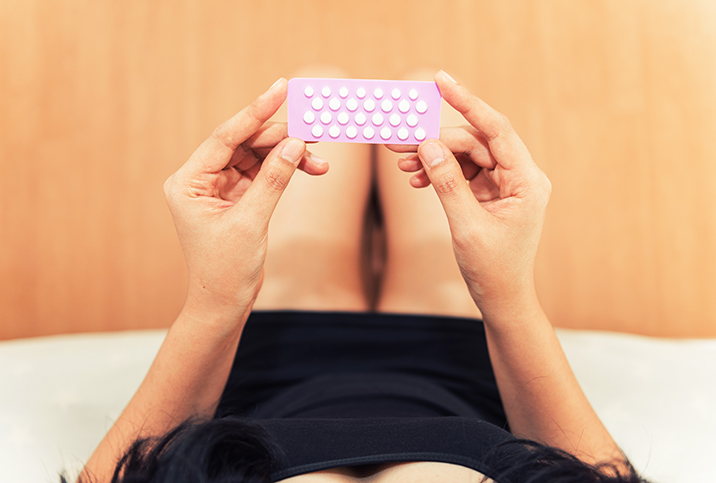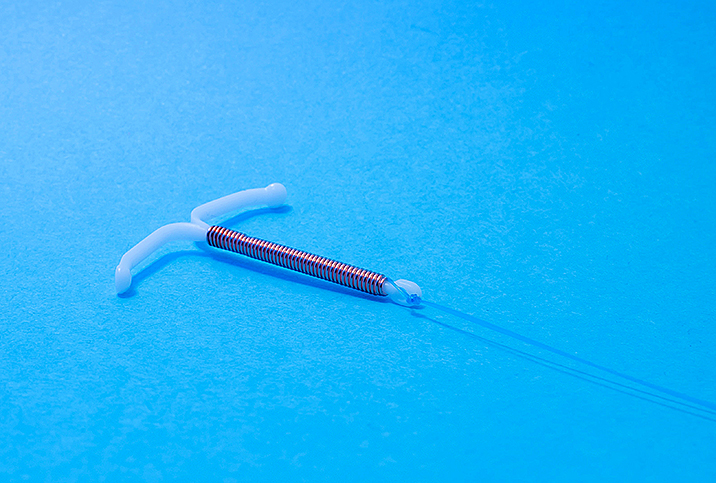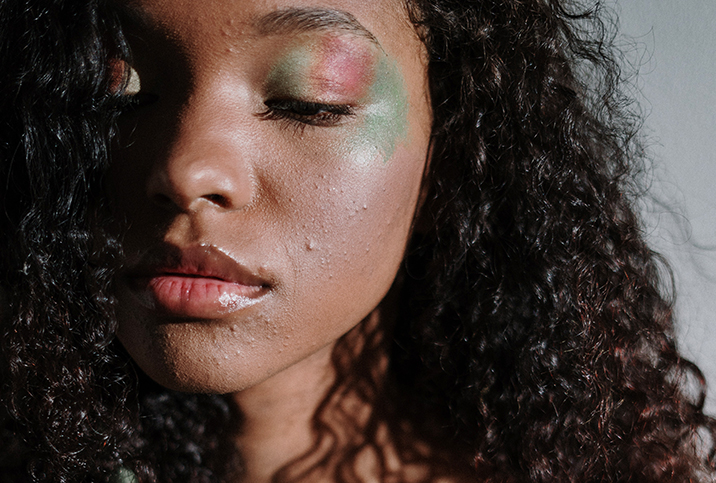Meet the Women Who Are Ditching the Pill

Tara, a 30-year-old travel blogger in London, started taking Yasmin birth control pills when she was 25. Shortly afterward, she found herself unable to regulate her emotions and experienced massive mood swings, plus she felt lethargic no matter how much she rested.
Figuring she needed to try another brand, she discontinued Yasmin and, at 26, went on Levonorgestrel, which led to the most emotionally agonizing time of her life. "I had hyperpigmentation on my face and was [so] sad," she said. "My noodle soup would arrive and I'd sob in the restaurant."
After three months, she opted out of the pill altogether and saw an immediate improvement in her mental health. "The sad cloud that had been following me lifted," she continued. "I was back to my usual self and happy to be alive."
Tara's not alone in ditching the birth control pill: A 2018 Cosmopolitan and Power to Decide survey of 2,000 women found that 70 percent of responders had quit or considered stopping birth control. "People don't realize until they come off [the pill] that it was improving or worsening their mood, libido, periods, vaginal infections, skin and so on," said Sarah Yamaguchi, M.D., a gynecologist based in Los Angeles.
Yamaguchi said the pill is frequently prescribed because it's a low-risk, low-cost, effective treatment for acne and irregular, painful and heavy periods, but women commonly desist, usually because of trouble remembering to take the medication, an inability to refill, a desire to get pregnant or dissatisfaction with the negative side effects.
That was the case for Megan, a 33-year-old wine bar owner living in Puerto Vallarta, Mexico, who started taking Ortho Tri-Cyclen Lo when she was 14 years old because she reported debilitating periods. "No one tried to get to the root cause of what was going on," she said.
A 2018 survey of 2,000 women found that 70 percent of responders had quit or considered stopping birth control.
After some time on the pill, Megan developed acne, cramps and anemia and then switched to Yasmin. This cleared up her skin and made her periods more manageable but caused significant weight gain. "I went from a lean, athletic build to gaining over 20 pounds in a year," she continued. "I felt like I was subdued or in a cloud. It would be many years before I understood this was linked to the pill."
Debilitating side effects also troubled Rebekah, a 21-year-old freelance health journalist in Philadelphia. "I experienced excruciatingly painful sex, low sex drive, unstable moods and vaginal tearing," she said, "because the low levels of estrogen had thinned out the skin on my vulva and vagina." She recalled having no lust for life and feeling angry, depressed and suicidal.
Aside from these negative side effects, the pill also poses health risks. Gynecologist Tara D. Scott, M.D., founder of Revitalize Medical Group in Fairlawn, Ohio, said people who take oral contraceptives containing estrogen are at a higher risk of blood clots, so "it's best to take them for the shortest time needed, as risks increase the longer you take them."
For anyone ready to dump their birth-control packets, Yamaguchi suggested considering why they were prescribed in the first place and consulting with a doctor about an alternative method of addressing that issue. But she agreed there are many benefits to stopping. "You're no longer putting hormones in your system," she said, "so you can monitor what is occurring naturally with your body."
After two years on the pill, Rebekah quit for good, and like Tara, she felt as if a veil had been lifted from her eyes. "My moods became stable," she recalled. After the mental health crisis she experienced on the pill, Rebekah is confident in her decision to stop taking hormonal birth control. "I never want to go through those side effects ever again," she added.
Megan is another desister who will never look back, stopping oral birth control when she hit the big 3-0. "I finally feel like myself and that I can listen to my body more intuitively," she said. "My period experience is worse, but at least it's real."


















